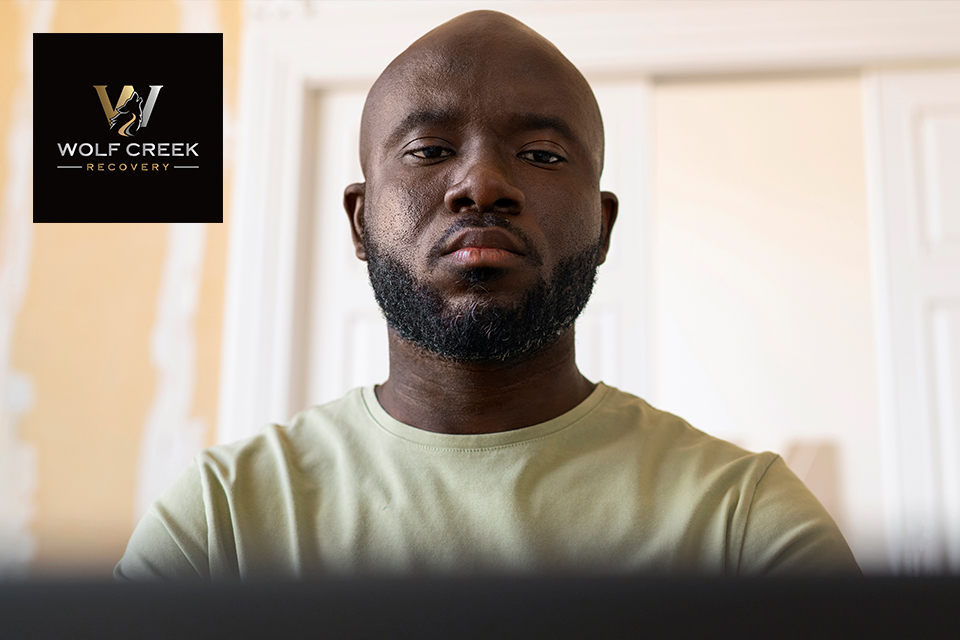“Trauma teaches us that healing is not about forgetting; it’s about embracing our scars and using them as reminders of our strength and resilience.” – Dr. Christine A. Courtois
Think of a memory that left a lasting impact on you. Was it a positive or a negative memory?
For many, the memories that leave their mark aren’t always good. The negative memories tend to hit the hardest, and they’re not always easy to come back from. In fact, some of those negative memories have the power to change the very core of who someone is, leaving a lasting scar that just won’t seem to heal. If you’re one of these individuals, our team at Wolf Creek Recovery is here to help. Learn more about our trauma and PTSD treatment and see how we can work with you to meet your healing goals.
What We Treat: Trauma and PTSD
When people think of trauma, they might think of “big” situations like someone who was sexually assaulted, or a survivor of a tragic event like 9/11 or the Boston Marathon bombing. While these situations can often lead to a trauma response, they’re not the only ones that do.
Anyone can experience trauma, and many people do. According to the World Health Organization, nearly 70% of people globally will experience at least one traumatic event in their lifetime. There isn’t a set list of things that are guaranteed to cause a trauma response in the brain, but there is overlap in how these situations make a person feel.
If something happened to you that made you feel unsafe, scared, humiliated, abandoned, rejected, trapped, powerless, and/or invalidated – you’ve likely experienced a traumatic event.
What’s the Difference Between Trauma and PTSD?
Trauma and PTSD are much like a square and a rectangle. Anyone who has PTSD has experienced trauma or knows of someone who has, but not all who experience trauma develop PTSD. They both will have effects from their trauma that last longer than the incident itself, but PTSD is a more intense disorder that develops as a result of trauma.
Trauma – especially PTSD – can haunt someone far after the event happens. It deeply influences who we are as people. Right now, that influence probably feels negative. You might still be afraid of the event happening again, or have unwanted memories of it resurface over and over.
Trauma doesn’t always have to hurt, though. It’s possible to heal, and turn these negative experiences into proof of your strength and resilience. Trauma therapy with Wolf Creek Recovery will provide you with the support you need to get there.

How We Treat: Trauma Therapy Offerings at Wolf Creek Recovery
Our approach at Wolf Creek Recovery is one that focuses on the needs of the individual, while also being backed by research. We don’t just offer a singular solution to help someone find healing, we work with you one-on-one to craft a plan that will address your needs and set you up for success.
Trauma therapy is at the core of much of what we do. This is because of how widespread and varied trauma and its related conditions can truly be. Trauma can lead to both substance use disorders and mental health conditions, and having those conditions puts you at risk for trauma, too.
We offer common therapies for trauma like CBT and EMDR, and also regularly enjoy the healing nature of the great outdoors. We play team sports, go camping, canoe, and more, building relationships and teamwork, and having a lot of fun while we do it.
Wolf Creek Recovery also provides on-site housing for anyone in our programs. You’ll spend the day at our facility, participating in trauma therapy and other interventions to help you recover. In the evening, you’ll return to our on-site housing, ensuring you have a safe place to stay as you focus on getting better – without giving up the freedom you would in an inpatient program.
We’ll work together to develop the best possible plan for you.
How Does a Dual Diagnosis Program Work?
There are many healing facilities that focus specifically on substance use or mental health, without addressing the fact that these two often interact. When someone has both a substance use disorder and a mental health condition, and you only treat one, it can often leave them uncertain of how to continue forward.
A dual diagnosis program addresses the person as a whole. If you have come to treatment for substance use and also have trauma you want to work through, dual diagnosis has you covered. Because these two so often are interlinked, dual diagnosis programs help you find recovery for both conditions separately and together, giving you a strong foundation for your lasting healing journey.

Understanding Trauma-Informed Care and the Most Common Types of Trauma Treatment
There are multiple approaches to addressing trauma, and no one approach is better than the other. We recognize that people, too, aren’t identical – which is why having options for treatment is so key. Let’s take a look at the different treatment options we offer.
Eye Movement Desensitization and Reprocessing
Also referred to as EMDR, Eye Movement Desensitization and Reprocessing utilizes the connection between eye movement and how the brain processes memory and emotion. Under the guidance of a trained therapist, EMDR is a way for people with trauma to change their emotional responses that are tied to their trauma.
Cognitive Behavioral Therapy and Other Forms of Psychotherapy
Psychotherapy is the most common approach to addressing trauma. Cognitive behavioral therapy, or CBT, is one of the most popular options, but isn’t the only one by far. Other approaches include cognitive processing therapy (CPT) and utilizing trauma-informed care as a basis for overall treatment.

Start Your Healing Journey Away From Trauma Today at Wolf Creek Recovery
There’s no wrong time to begin healing, but there’s no better time than today. Our team is dedicated to working with you to ensure you have a treatment plan that addresses your needs. You can contact us to learn more or get started.
Wolf Creek Recovery always approaches recovery with honesty, integrity, and compassion. You deserve to have healing that sees you as more than your diagnosis. Give us a call at 833-732-8202 and we’ll answer any questions you may have.
Build a life you love.













